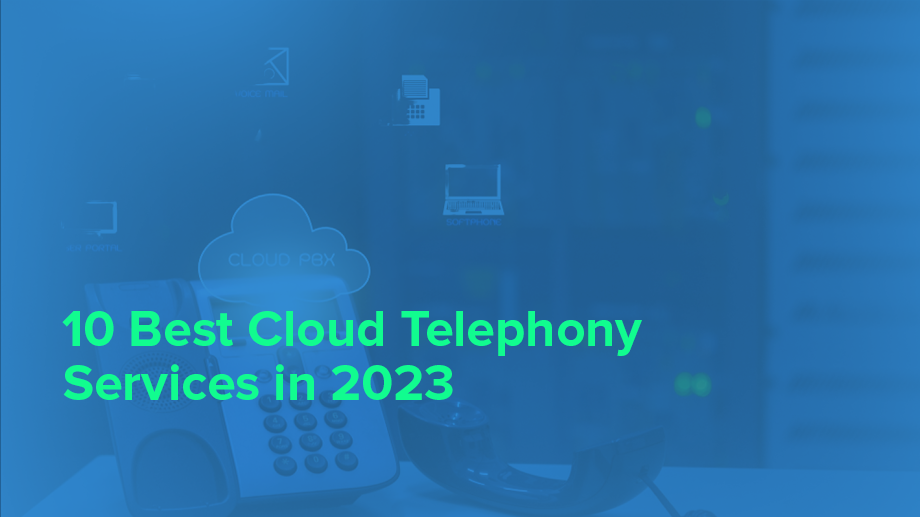- Resources
- What is an Auto Dialer, and Why Do You Need One?
What is an Auto Dialer, and Why Do You Need One?

According to a recent survey,44% of today’s consumers prefer speaking to an actual person or live agent on a phone line. This means call centers – sometimes referred to as contact centers – are the number one customer service channel for today’s consumers.
Unfortunately, some call centers run outbound call campaigns without using auto-dialer software. As a result, a live agent is forced to manually make phone calls in the hopes of reaching someone. Randomly dialing phone lines rarely works.
Calling Customers Should Be Easy
Given the competition for today’s consumers and the need to improve the customer experience, not having auto-dialing software can cost you valuable time. Your call center agents, salespeople, and customer service team members shouldn’t waste time dialing random phone numbers. They shouldn’t have to deal with a busy signal or be forced to make multiple calls to find an active telephone line.
Sales agents shouldn’t spend time leaving a message on an answering machine. They shouldn’t have to worry about unanswered calls distracting them from their core tasks. Spending time trying to get a customer on the phone line is no way for agents to maximize their value. After all, they’re there to speak with customers and generate opportunities.
The best way to keep your call center running smoothly – and your customers happy – is by using auto-dialer software. Let the software perform automated calls on your agents’ behalf. These systems can generate significantly more calls than an individual salesperson or agent.
So, what is an auto-dialer, and why is it considered the ideal phone system for today’s businesses?
Understanding Auto-Dialer Software
Auto-dialing software works by auto-dialing phone numbers from a predefined list of contacts. In other words, your call center, sales, and customer service team members no longer have to do manual dialing. The auto-dialer software maximizes your agents’ talk time while making multiple phone calls on your agents’ behalf.
Instead of having your customer service and sales team members dial one phone number after another, the dialer software for call center performs that function on its own. Auto-dialing multiple numbers allows your agents to focus on engaging your customers.
Theauto-dialer software bypasses answering machines and busy signals. It also avoids unanswered calls by immediately auto-dialing the next contact on the list. Auto-dialing these numbers means your agents only deal with customers that have answered calls. This dramatically improves your company’s outbound calling process by ensuring that your team members only speak to customers once the auto-dialer reaches them.
Cloud-Based Auto-Dialer Software
COVID has impacted every aspect of daily life. It has changed the way we interact with friends, families, and co-workers. In response, companies have come to accept that working remotely from home is often a necessity. Fortunately, though remote workers don’t have on-site office phones, they can still benefit from cloud-based auto dialers.
Cloud-based auto-dialing systems allow users to access the software from anywhere with a browser and internet device. As a result, today’s sales and customer service team members can easily access auto-dialer software remotely.
There is no software to buy up front, and there are zero setup costs. Companies don’t have to purchase hardware or have their IT departments install, troubleshoot, and monitor the software. Instead, users simply access the platform online. From there, they can instantly begin an outbound call campaign or initiate a series of telemarketing calls.
Benefits of Cloud-Based Auto-Dialers
Cloud-based auto-dialing systems reduce agent idle time. The auto-dialers immediately route answered calls to the next available agent. Even when agents are occupied, the auto-dialing software continues to make outbound calls so that once agents become available, they can immediately handle the call. However, these aren’t the only benefits of call center software.
Eliminate the Need for a Voice Modem
Auto-dialers that are available through software as a service (SAAS) mean that there is no need for a voice modem. These cloud-based solutions eliminate the need to purchase internal modem cards for all of your users. Your IT department doesn’t have to spend time installing software, dealing with voice modems, or managing multiple user licenses.
Improve Lead Generation
Companies often overlook the fact that their call centers can be a constant source of new leads and opportunities. However, that is only true when call center agents, customer service team members, and salespeople are moving in the same direction. Auto-dialing systems coordinate the activities of your entire team, allowing them to capture critical data, generate opportunities, and schedule follow-ups.
Increase Inbound Sales
Your team’s speed of response is critical when receiving inbound calls. The faster the response, the more likely you are to engage your customers and win new business. Surprisingly, it takes many B2B enterprises up to48 hours to respond to incoming leads. However, responding within the first minute increases yoursales closing rate by 391%. No company can compete in a crowded marketplace by being the last to respond. Dialing multiple phone numbers takes time and is best left to auto-dialing systems.
Improve Your Outbound Calling Strategy
Do you have excess inventory that you need to liquidate quickly? Have you recently launched a new product line with special offers and discounts? If you answered “yes” to either of these questions, then you know how important it is to be the first to market with these great deals. Auto-dialer software makes your outbound campaigns much easier to manage. You will increase your speed of response on outbound campaigns because the auto-dialer software will continue auto-dialing numbers, so agents always have a customer to speak with.
Integrate with Customer Resource Planning (CRM) Software
You can easily integrate your auto-dialing system with many of today’s CRM solutions. This means you can place customer information in the CRM after each call. That critical customer data can then be used to improve future outbound call campaigns, perform follow-up calls, and set tasks for sales and customer service.
Manage Consent Preferences
Adherence to the “telephone consumers protection act” is another feature of today’s auto-dialers. This legislation allows consumers to opt out of receiving calls. Once that happens, the auto-dialer will register their number as off-limits, ensuring no additional calls to that number.
Provide a Pre-Recorded Message
Aside from standard features like automatic dialing and call waiting, today’s auto-dialers allow you to deliver pre-recorded audio messages. These pre-recorded messages are delivered to your customers before the calls are routed to agents. In addition, you can use this feature to leave a message on unanswered calls if the outbound call goes to voicemail.
Call Monitoring, Call Recording, Call Scheduling and Call Filtering
With an auto-dialer system, call center managers can spend more time focusing on improving the skillsets of their agents and customer service team members. Managers can listen to discussions in real-time with live call monitoring, and they can record calls to review with agents later. Managers can also use call filtering to remove or avoid phone numbers that are no longer in service, disconnected, or are never answered.
These features allow managers to go over calls with agents for quality and training purposes and provide them with personalized solutions for improving the customer experience. Agents gain have the opportunity to gain invaluable insight into handling the most common customer complaints. Managers can also leverage reports and implement call ratios to better distribute their team’s workload.
- Auto-dialers avoid busy signals, answering machines, and unanswered calls.
- Automatic dialing succeeds in maximizing agent talk time.
- Auto-dialer software eliminates manual dials.
- Auto-dialer features include call waiting, call monitoring, call recording, and call tracking.
- Today’s auto-dialers adhere to the “telephone consumer protection act.”
- Auto dialers easily integrate with CRMs.
- There is no need for a voice modem.
What Are the Different Types of Auto-Dialers?
Standard auto-dialers are best for small and medium-sized enterprises (SMEs). These companies typically have smaller call centers and customer service teams. Their client lists may be limited, or they may not have a high volume of calls to make each day. Auto dialers can handle multiple customers, but their call volume capabilities are lower compared to other auto-dialing software.
Other types of auto-dialers have different functions and purposes. Each one is geared towards accomplishing a set of defined criteria. Each one performs auto-dialing on behalf of agents. Options include a power dialer, a predictive dialer, a preview dialer, or an IVR dialer. So, how do each of these auto dialers work?
Power Dialers
Power dialers are ideal for cold calling telemarketing campaigns. The contact list size for this type of software is 1000+ contacts per day with a call volume of 300+ calls per agent. The power dialer’s main objective is to maximize agent productivity and efficiency. This is especially useful for agents who don’t require a lot of preparation time between calls. These systems typically have the fastest outbound campaign completion time. This makes power dialers ideal for companies that run a high volume of campaigns.
Predictive Dialers
Predictive dialer software finds the all-important balance between call quality and call quantity. Predictive dialers quickly dial phone numbers so that a call is ready to be handled the moment an agent is available. This predictive dialing feature ensures that customer service agents don’t have to wait long before handling another call.
The algorithms in the predictive dialer software track multiple call metrics and key performance indicators (KPI). The predictive dialer analyzes the average length of calls, the number of calls answered, and the remaining calls on the contact list. The predictive dialer then takes that customer data and related information and compares it to the number of agents within the call center. It continues making simultaneous calls for all agents while constantly calculating how many contacts remain on the list.
Predictive dialing software reconfigures its analytics in real-time. Its machine learning capability means predictive dialing software is always adjusting to real-time feedback and the performance of individual agents. Regardless of the length of the call or the number of agents, the predictive dialing mode is always adjusting.
Predictive dialers have a daily capacity of 100 to 900 contacts, with about 100-250 calls handled by each agent. In many ways, predictive dialers are like auto-dialers. The biggest difference is that predictive dialers handle a higher volume of calls and require more call agents.
Preview Dialers
Unlike predictive dialing software, preview dialers operate on a contact list of fewer than 100 contacts. Agents typically handle between 50 to 100 calls per day. However, the preview dialer software makes up for lower dialing modes by emphasizing call quality.
Preview dialers give agents from five to twenty minutes between each call. This allows them to review customer data from previous calls so that they are ready to handle any situation once they engage the customer.
Preview dialers are often used by companies that have long sales cycles or who need to gather and store directly personal information about the call. Companies that provide after-sales and technical support are ideal companies for preview dialers.
IVR Dialers
Last but not least are IVR dialers. IVR stands for interactive voice response (IVR). IVR dialers are like power dialers and predictive dialers, except they handle a much higher call volume. They have the ability to reach upwards of 10,000 contacts in a single day.
These systems are automated and run without agents, so IVR dialers can operate 24/7. IVR Dialers are an ideal solution for delivering pre-recorded messages. Companies that need to deliver a large volume of messages, reminders, or surveys often use IVR dialers.
The drawback of IVR dialers as compared to a predictive dialer or other auto-dialer systems is that call quality is not the primary goal. These systems are mainly used for bulk messaging. Customers receive recorded messages, and there is no way for them to reach an agent.
Full-Service Solutions Through Ozonetel
Ozonetel packs all the tools you need to improve service levels into an affordable, easy to integrate, quick to set up call center solution. We can help you choose between our power dialer, predictive dialer, preview dialer, and IVR dialer by discussing your business and its needs.Contact us to learn more!







